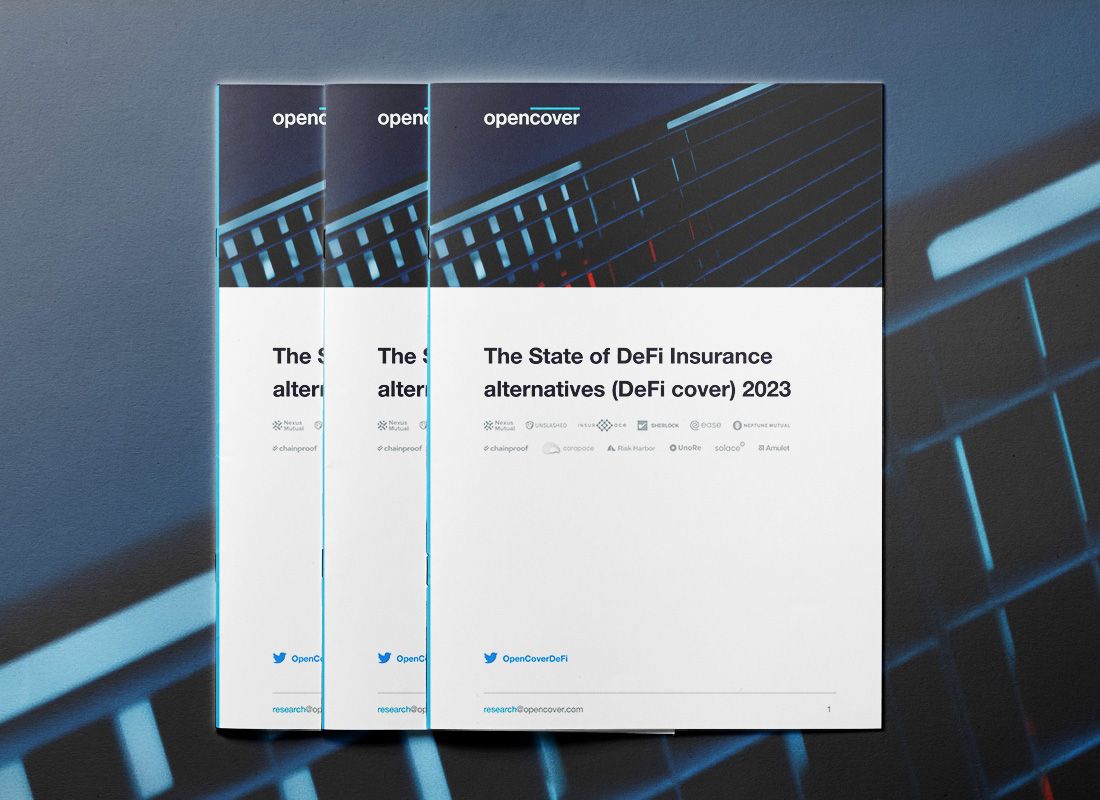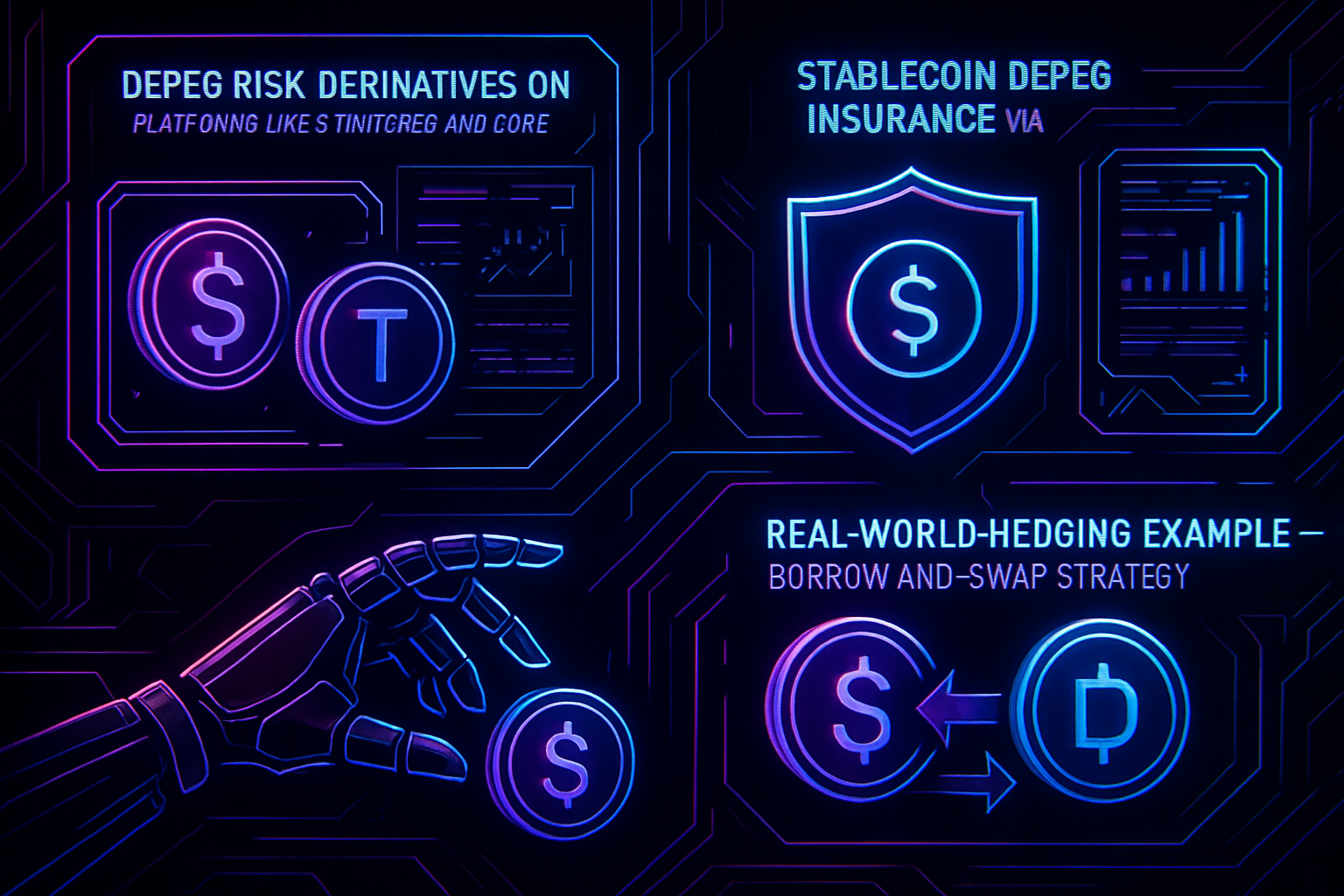
Decentralized finance (DeFi) has revolutionized access to financial products, but with innovation comes risk. From stablecoin depegs to protocol exploits, smart contract vulnerabilities, and market volatility, crypto investors face an evolving web of threats. Fortunately, a new generation of innovative DeFi hedging products is emerging to help users safeguard their assets, led by parametric insurance and smart contract covers.

What Sets Parametric Insurance Apart?
Traditional insurance pays out only after assessing actual damages, often resulting in slow claims and disputes. Parametric insurance DeFi, by contrast, delivers payouts automatically when pre-agreed parameters are met, no adjusters or paperwork required. This model is especially powerful in the blockchain space, where events like stablecoin depegs or protocol hacks are transparent and data-driven.
Neptune Mutual Parametric Insurance Pools exemplify this approach. These pools allow users to hedge against specific risks such as stablecoin depegs or protocol exploits. If a covered event occurs, say, a stablecoin loses its peg below a certain threshold for a set period, the pool triggers an automated payout to policyholders. The process is fast, transparent, and minimizes human error or bias.
This system relies on trusted data feeds (oracles) to verify when conditions are met. For example, if USDC trades below $0.98 for more than 24 hours on major exchanges, Neptune Mutual’s smart contracts execute payouts instantly, providing peace of mind during volatile periods.
The Rise of Smart Contract Covers
While parametric models focus on predefined events, smart contract cover crypto solutions offer protection against losses stemming from unforeseen bugs or exploits in DeFi protocols themselves. Here’s where Nexus Mutual Smart Contract Cover stands out.
Nexus Mutual lets users purchase coverage for funds deposited into supported DeFi protocols like Aave or Compound. If a protocol suffers a material exploit resulting in user losses, not just price volatility but actual code failure, the cover triggers claim eligibility. The process combines decentralized governance (members vote on claims) with robust risk assessment models built specifically for the unique threats facing digital assets.
This type of cover is crucial as smart contract risk remains one of the largest pain points in DeFi adoption. By pooling risk across thousands of users and protocols, Nexus Mutual creates an efficient market for coverage, and gives institutional and retail participants alike confidence to engage with cutting-edge platforms.
Key Features of Leading DeFi Hedging Products
-

Neptune Mutual Parametric Insurance Pools: These pools offer automated, transparent payouts for events like stablecoin depegs or DeFi protocol exploits. Payouts are triggered when predefined parameters are met, ensuring fast claims settlement and reducing administrative overhead. Users benefit from guaranteed stablecoin liquidity to hedge against capital risks and smart contract vulnerabilities.
-

Nexus Mutual Smart Contract Cover: Nexus Mutual provides insurance against smart contract failures across major DeFi protocols. Their smart contract cover leverages blockchain to automate risk assessment and claims, offering peer-to-peer protection for users exposed to protocol bugs, hacks, or exploits. This enhances trust and transparency in decentralized finance.
The Benefits, and Challenges, of Automated Hedging Products
The real magic happens when these two innovations converge: parametric triggers ensure instant response to objective events; smart contracts automate policy enforcement without intermediaries; and decentralized governance brings transparency to claims decisions.
Key benefits include:
- Speed: Automated payouts reduce wait times from weeks to minutes
- Transparency: Blockchain records every step for auditability
- Cost Efficiency: Fewer middlemen mean lower premiums and greater access
- User Empowerment: Retail investors can protect themselves like institutions once did
Naturally, there are challenges too, especially around oracle reliability (garbage in, garbage out), regulatory clarity, and ensuring sufficient liquidity for large-scale events. But as platforms like Neptune Mutual and Nexus Mutual mature, and as more capital enters the space, the ecosystem becomes stronger against systemic shocks.
Both Neptune Mutual and Nexus Mutual are at the forefront of this risk revolution, each addressing distinct but complementary aspects of DeFi exposure. Their adoption signals a broader trend: risk mitigation is no longer an afterthought but a core pillar of decentralized finance.
How These Products Work in Practice
Let’s look at real-world use cases. During the March 2023 USDC depeg, users who held Neptune Mutual parametric insurance policies received automated payouts when the stablecoin’s price fell below $0.98 for over 24 hours, as verified by multiple on-chain oracles. No lengthy claims process. No subjective interpretation. Just immediate relief when it mattered most.
Meanwhile, Nexus Mutual smart contract covers have protected users from protocol-specific disasters. Suppose a major lending protocol like Aave suffers an exploit leading to unrecoverable losses; policyholders can submit claims, which are then reviewed and voted on by the community using transparent criteria and on-chain data.
Why This Matters for Crypto Investors
The ability to hedge against both systemic events (like depegs) and idiosyncratic risks (such as protocol exploits) is transformative. It empowers DeFi participants to take calculated risks without exposing themselves to catastrophic loss. For institutions managing large portfolios, these tools are essential for compliance and risk management frameworks. For retail users, they offer peace of mind in an environment that once felt like the Wild West.
Importantly, these products also foster greater trust in DeFi as a whole. By reducing uncertainty and demonstrating that losses can be contained or compensated transparently, Neptune Mutual and Nexus Mutual help drive adoption among mainstream audiences who might otherwise be wary of crypto volatility.
The Road Ahead: What’s Next?
The landscape for innovative DeFi hedging products is rapidly evolving. As protocols integrate more robust oracles, improve governance models, and attract deeper liquidity, expect coverage options to become broader and more affordable. New entrants will likely build specialized products targeting emerging risks – from cross-chain bridge failures to regulatory actions impacting tokenized assets.
This evolution won’t be without its hurdles: regulators are watching closely, oracle manipulation remains a technical concern, and liquidity crunches during black swan events could stress even well-designed insurance pools. But the momentum is undeniable – protection products like those from Neptune Mutual and Nexus Mutual are setting new standards for what’s possible in decentralized risk management.
If you’re considering adding hedging strategies to your crypto portfolio, start by exploring these two market leaders:
Top DeFi Hedging Products: Key Features
-

Neptune Mutual Parametric Insurance Pools: Neptune Mutual offers parametric insurance pools that provide automated payouts for stablecoin depegs and DeFi protocol exploits. Claims are triggered when predefined parameters are met, enabling fast, transparent settlements without lengthy claims assessments. This approach helps users hedge against capital risks and smart contract vulnerabilities in the DeFi space.
-

Nexus Mutual Smart Contract Cover: Nexus Mutual provides smart contract cover that insures users against losses from smart contract failures on major DeFi protocols. Policies are managed and executed via blockchain-based smart contracts, ensuring decentralized claims processing and increased trust. This cover is widely used for protecting assets on platforms like Uniswap, Aave, and Compound.
The future of DeFi doesn’t just belong to innovators building new protocols – it belongs equally to those building safety nets beneath them. As always: knowledge is the best hedge.



